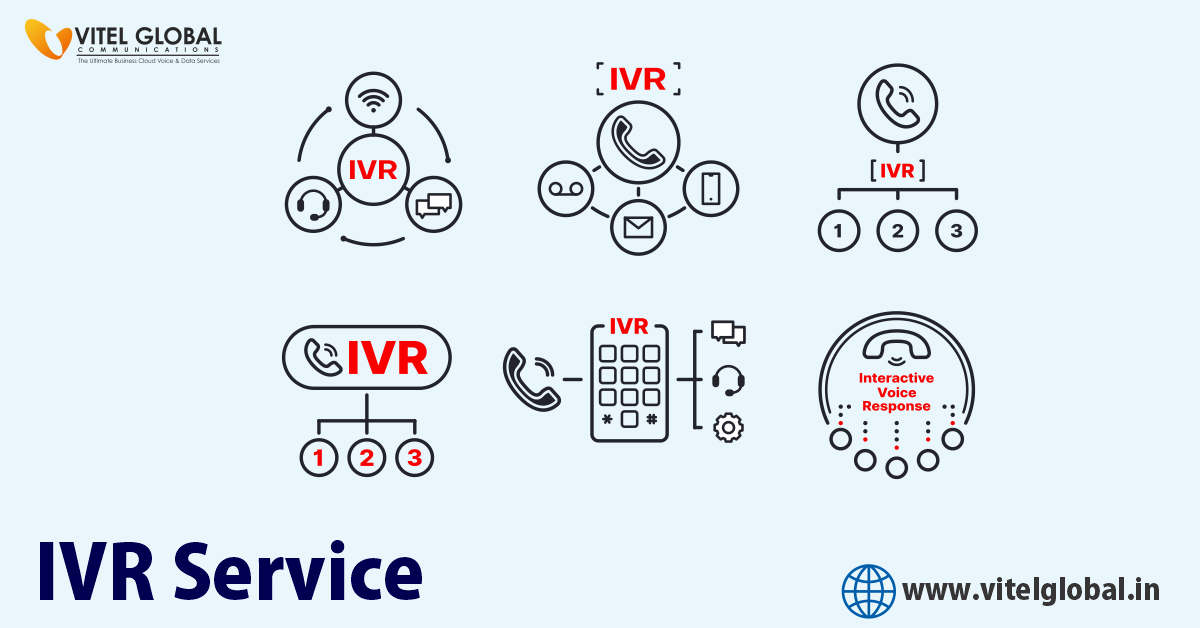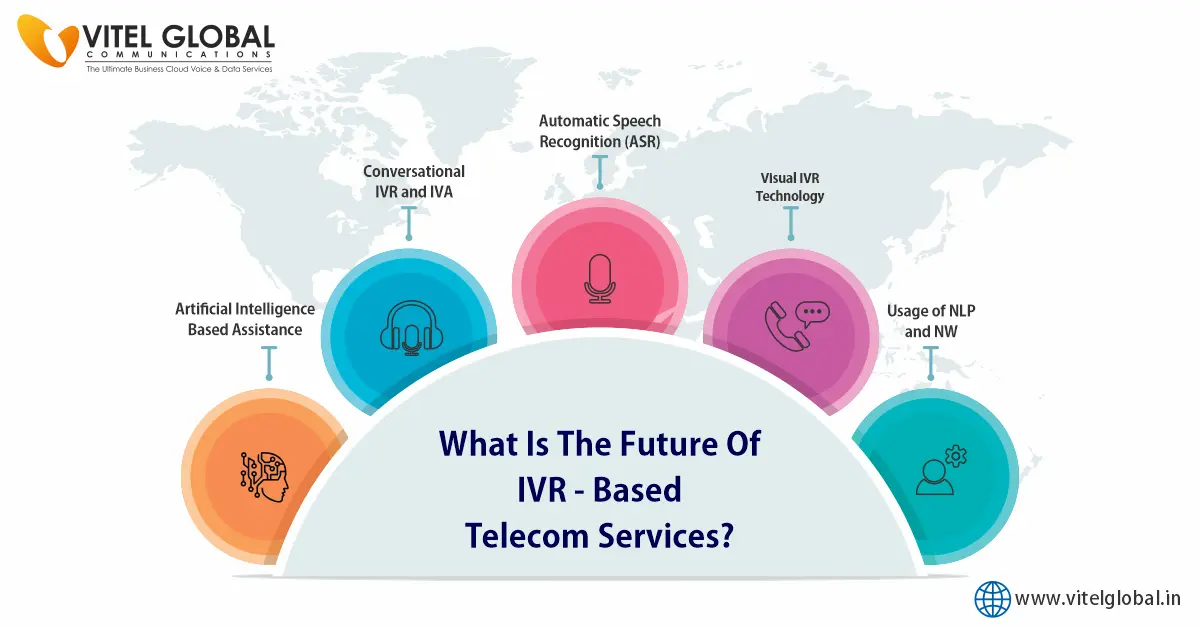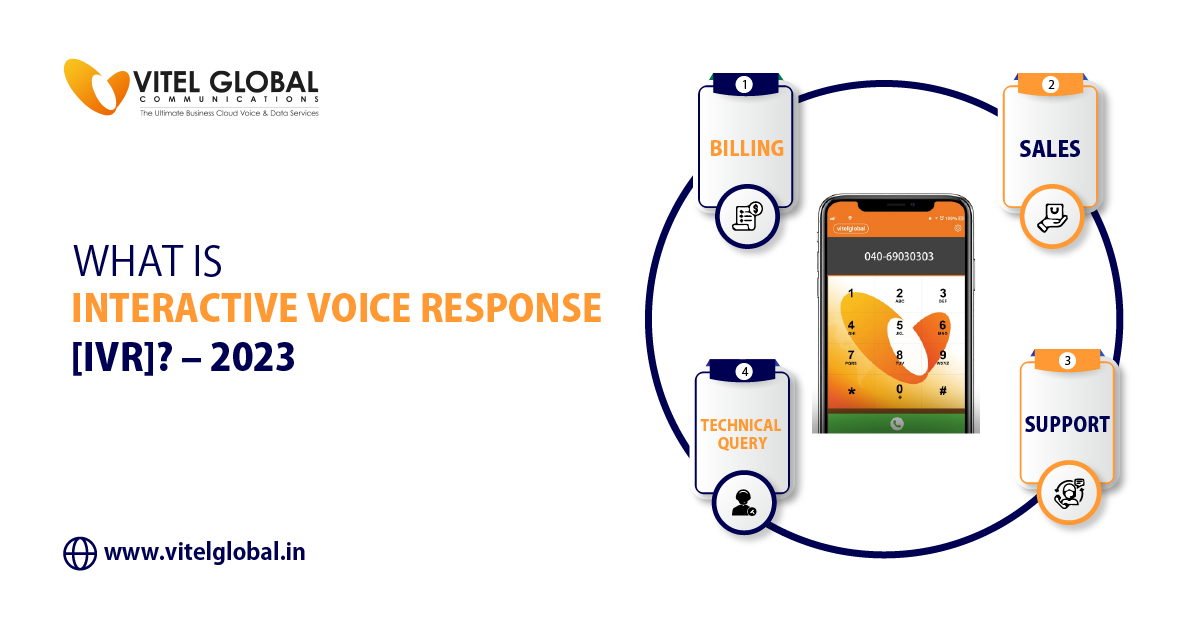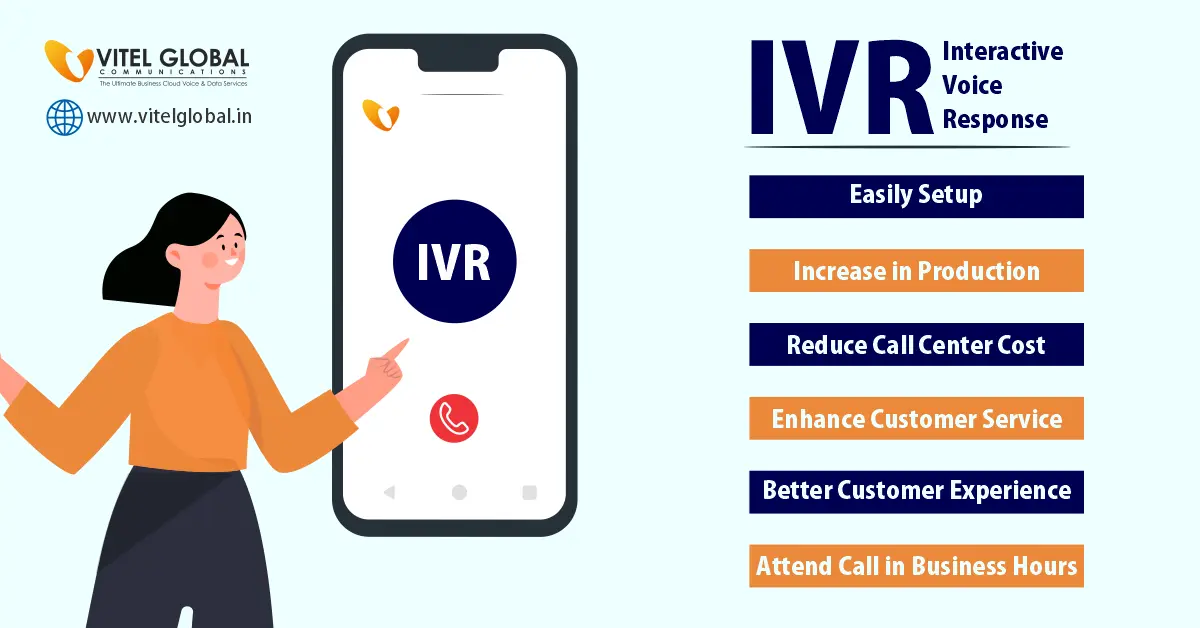Table of Contents
IVR stands for Interactive Voice Response. Generally found in business systems mostly used by customer care teams, IVR has many benefits to offer. Let’s discuss this innovative digital feature in this blog.
What is IVR (Interactive Voice Response)?
IVR (Interactive Voice Response) is a set of recorded messages in a voice (or sometimes text-to-voice technology) interface that keeps the callers engaged when there is a high call flow. In most cases, The IVR numbers allow the caller to opt in and access information without assistance.
Yet, if the caller cannot get the information he is looking for with IVR, the call will be routed to a live agent for better assistance. If a company integrates its software with IVR, this helps to increase the call flow while minimizing the wait time. All this leads to intended customer satisfaction.
Factually, the IVR software can be customized by changing the programmed menu. Nowadays, technology is advancing, and new forms are being developed. Using them, the caller can not only choose from the pre-programmed menu (touch-tone system) but also place his request verbally. The software, through speech recognition, can respond.
How Does IVR Work (Interactive Voice Response)?
Before constructing an IVR system, there is a need for some basic components.
- A TCP or an IP network provides internet/intranet to the system.
- There must be a dedicated database to provide the required data
- A server where all the IVR applications go live. This server can host multiple applications simultaneously.
Types of IVRs:
Touch Tone Replacement IVR:
This is the most common system used. The touch-tone system enables the customer to choose the options by pressing the numbers per IVR’s guidance.
Directed Language IVR:
The directed language IVR system is pre-programmed with certain verbal prompts. For example, if the customer is already on the route, the system might ask him verbally to choose between the 2 options provided and the customer must choose.
Natural language IVR:
This is the advanced technology in IVR where the system will ask the question about what the customer is looking for and the customer might answer with his interest in accessing the information.
What are the Benefits of the Interactive Voice Response?
In fact, IVR has a lot of benefits to offer any organization. This automation tool has competitive advantages in ensuring customer satisfaction. Find some of the key benefits below.
Security:
Regarding technology, advancement is always better. Some IVR systems ask for voice recognition to validate the customer’s identity. Such a feature will add an extra layer of security to the database protecting the sensitive personal information of the individuals as well as the company.
Low Operational Costs:
The Interactive Voice Response is very cost-effective and finds how! No organization can completely rely on human resources every time. This automated system keeps the customer engaged or solves the customer’s concern if possible. It helps in controlling the call flow at times. Also, this will create a way for the customer to access the information during off-peak hours, such as holidays and non-working hours.
Call Routing:
The IVR system provides the required information to the customer. If the customer still wants to know more than the information in the pre-programmed system, the customer’s call will be routed to the representative.
Minimal Errors:
It can stop errors from happening because the call routing or controlling is not done by a but by the system entirely. This measure can minimize any errors that used to take place.
What are the limitations of IVR?
Unwanted Communication:
If the customer is already in a rage, due to any flaw in the product or your service, he will not be ready for this IVR to listen. This automated voice response might frustrate him more as there is no one to understand his problem.
Long Call Duration:
Everything has its flaws when it comes to life. Even if the service has advanced technology, it addresses the most common and frequently asked questions. For the IVR system to completely present the available services, customers might feel uncomfortable listening to unnecessary data.
Complex Options:
Customer satisfaction is most affected as the customer might want to reach out to one option out of all provided. As the motive of the IVR is understandable to current customers (to streamline the call flow in the call centers), this might annoy the customers while listening to the more complex IVR menu.
Conclusion:
As we know, every product or service has its benefits and limitations, and it is better to validate its worth by comparing its pros and cons so that one could prefer one among them. But every technological advancement would help cut down the cons to satisfy the users and their customers.
Thanks to technology, IVR service providers are enhancing the quality of the call, Services, customer engagement, and solutions by providing access to information.
Grow your business and 𝒎𝒂𝒙𝒊𝒎𝒊𝒛𝒆 𝒑𝒓𝒐𝒅𝒖𝒄𝒕𝒊𝒗𝒊𝒕𝒚 with the industry’s best business communication service.
For more details, visit our website and start creating wonders in your organization right away.
For More Info or Book Your Free Demo Today click here.






